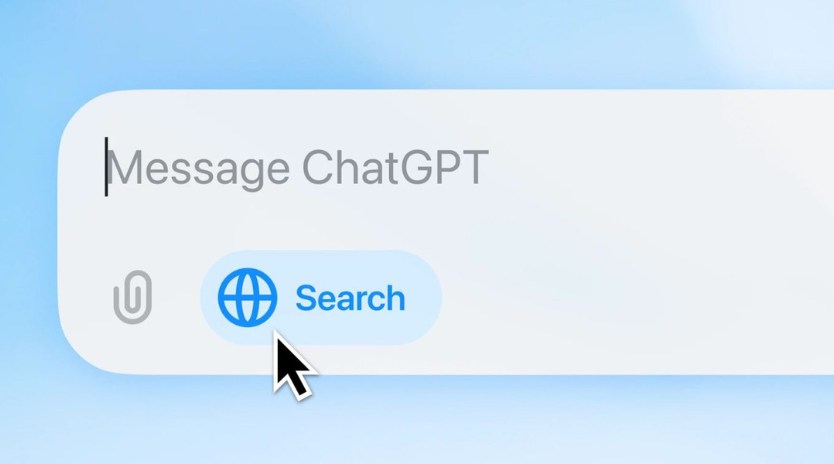OpenAI launches AI Search, giving IBIS clients a competitive edge

OpenAI’s launch of ChatGPT Search marks a transformative moment in digital search, positioning ChatGPT as a strong competitor to search engines like Google and Bing. This new feature integrates a web search function that provides users with real-time information—including sports scores, stock quotes, weather updates, and news—powered by partnerships with major data providers. IBIS Studio’s clients, who are already benefiting from ongoing SEO campaigns, stand to gain significant visibility advantages as their optimized content and location data are more likely to be indexed and retrieved by AI-driven search engines.
The advantage of ChatGPT search for IBIS clients with ongoing SEO campaigns
Since OpenAI beta-tested “SearchGPT” in July, anticipation has been high around its potential as a new search engine alternative. With the official integration of search functionality into ChatGPT, OpenAI brings a fresh approach to information retrieval, leveraging its advanced AI to provide more conversational, contextually relevant answers than traditional search engines. For businesses actively optimizing their online presence, this move by OpenAI enhances their competitive positioning within AI-generated search results.
Why ongoing SEO matters now more than ever
For IBIS Studio’s clients, ongoing SEO efforts and structured data optimization ensure that their content is not only visible in Google but now also indexed and prioritized by emerging AI-driven search platforms like ChatGPT and Google’s Gemini-powered Search Generative Experience (SGE). The real-time data integration means that businesses maintaining accurate, up-to-date listings and engaging content are increasingly likely to see their information surfaced directly in ChatGPT’s new search function.
How IBIS’s Location Data Propagation System prepares clients for AI-driven search
IBIS Studio plays a pivotal role in helping clients structure their location and business data to meet the demands of generative AI applications, such as ChatGPT, Google’s Gemini-powered SGE, and Bing Chat. By managing content through IBIS’s Content and Listings features, businesses ensure their information is both accurate and widely distributed across platforms. This provides two major advantages:
- Enhanced Data Accuracy Across Platforms: Through structured and consistent information, IBIS guarantees that clients’ data is up-to-date and accessible on all major digital channels. This accuracy is essential for AI platforms, which prioritize well-organized, current data to deliver reliable information to users.
- Expanded Reach through AI: By integrating with generative AI applications, IBIS helps clients extend their reach beyond traditional search engines. Google SGE, ChatGPT, and Bing Chat rely on structured data feeds to ensure accurate, relevant information appears in AI-powered responses. IBIS’s capabilities ensure clients’ information is always primed for indexing across these channels, providing a direct line to new audiences through AI applications .
Generative AI indexing methods and how they benefit IBIS clients
Generative AI platforms have different methods for indexing data, each presenting unique opportunities for businesses optimized through IBIS Studio’s services. Here’s a look at how three major generative AI platforms process business data:
- ChatGPT: As an advanced AI chatbot, ChatGPT uses extensive pre-existing data from its latest training cycle. However, its static nature poses challenges for real-time updates. By utilizing IBIS’s data feeds, businesses ensure ChatGPT has access to accurate, current data, helping reduce misinformation and ensuring reliable representation in search responses .
- Google’s Search Generative Experience (SGE), powered by Gemini: Google SGE stands out for its real-time data capabilities, pulling structured data from Google Business Profiles and third-party sources to deliver comprehensive AI-generated summaries. IBIS integrates client data directly with Google Business Profile, synchronizing information across Google’s platforms. This integration is crucial for local search visibility, as it ensures that Google SGE displays precise and current information on location, hours, and services .
- Bing Chat and Meta’s AI Tools: Bing and Meta, like Google SGE, rely on structured, real-time data for generating location-based search results. IBIS’s platform continuously updates client business data, providing verified, current information to AI applications like Bing Chat. This process helps clients maintain a consistent, accurate digital presence, increasing their likelihood of being featured in AI-generated results across platforms .
Importance of onsite SEO in generative AI indexing
In addition to structured listings, onsite SEO practices are critical for ensuring that content is indexed effectively by generative AI models. These methods enhance discoverability and align content with AI-driven search algorithms.
- Content Quality and Structure: Generative AI applications prioritize well-structured and comprehensive content. Through schema markup, structured data, and organized headings, IBIS enhances clients’ onsite SEO, making it easier for AI to interpret content accurately. Schema markup adds context to content, allowing models like ChatGPT and Google SGE to index essential data points such as FAQs, reviews, and product information. For example, well-marked FAQ sections often appear in AI-driven summaries, further boosting visibility .
- Keywords and Relevance: Generative AI, especially large language models, interprets keywords and semantic relationships to provide accurate responses. By using relevant keywords and natural language, IBIS ensures that client content aligns with popular search terms, increasing the likelihood of being selected in AI indexing. When content includes specific terms users are searching for, AI models are more likely to surface that content in their responses .
- User Experience (UX): Generative AI platforms now give priority to user-centric features, including page load speed, mobile compatibility, and ease of navigation. IBIS optimizes these elements as part of its SEO strategy, enhancing clients’ chances of being indexed and recommended by AI applications. These factors are often associated with content reliability, making UX improvements key to achieving high visibility in AI search results.
Role of offsite SEO in enhancing AI visibility
Offsite SEO practices such as obtaining quality backlinks and maintaining consistent listings also play a significant role in boosting visibility on generative AI platforms.
- Backlinks from Authoritative Sources: Generative AI models use backlink quality as an authority measure. Links from reputable websites signal to AI that the content is trustworthy, encouraging the AI to prioritize it in responses. By securing backlinks from industry-relevant publications, IBIS helps its clients’ content rank higher within AI-generated results .
- Consistent Listings and Citations: AI platforms pull data from a range of directories, including Google Business Profile, Yelp, and industry-specific sites. Maintaining consistency across these platforms improves the likelihood that AI applications will recognize client content as credible and up-to-date. Through IBIS’s systematic management, businesses can ensure their information remains accurate across all platforms, strengthening their credibility and visibility within AI search engines .
How IBIS clients gain an immediate competitive advantage with AI Search
In the era of overabundance of AI content, high-quality human-generated content has gained a new advantage in the evolving landscape dominated by AI-generated content. As the volume of AI-generated material increases, concerns over quality and authenticity are also on the rise. Generative AI can produce content at scale, but this often results in lower-quality, generic output, lacking the organic insights and nuanced perspective that human-created content offers. Users and AI algorithms alike are beginning to recognize the depth and reliability associated with human-created content, which tends to provide more relevant, authoritative information. This is especially significant as search algorithms increasingly prioritize content that demonstrates expertise, authority, and trustworthiness (EAT)—qualities often inherent in thoughtfully crafted human content.
By leveraging high-quality, SEO-optimized content, IBIS’s clients are not only competing effectively in traditional search engines but are also better suited to stand out within generative AI models. This approach secures a reliable, authentic digital presence that contrasts sharply against AI’s repetitive or less sophisticated outputs, ultimately creating an edge for IBIS clients within AI-driven search
For IBIS clients, the implementation of structured, optimized content and consistent listings puts them in an advantageous position as ChatGPT and other AI applications begin to dominate the search landscape. By maintaining high SEO standards and real-time data updates, IBIS ensures that clients’ information is more likely to be indexed and highlighted by generative AI applications, granting them increased visibility in a rapidly evolving market.
As OpenAI continues to develop ChatGPT’s search capabilities, the benefits of a strong SEO foundation will only grow for businesses. With IBIS’s SEO strategies, clients not only perform well in traditional search engines but are also primed for success in the expanding realm of AI-driven search. The proactive approach taken by IBIS Studio guarantees that client data remains at the forefront of AI search results, offering them a powerful edge over competitors unprepared for these changes


